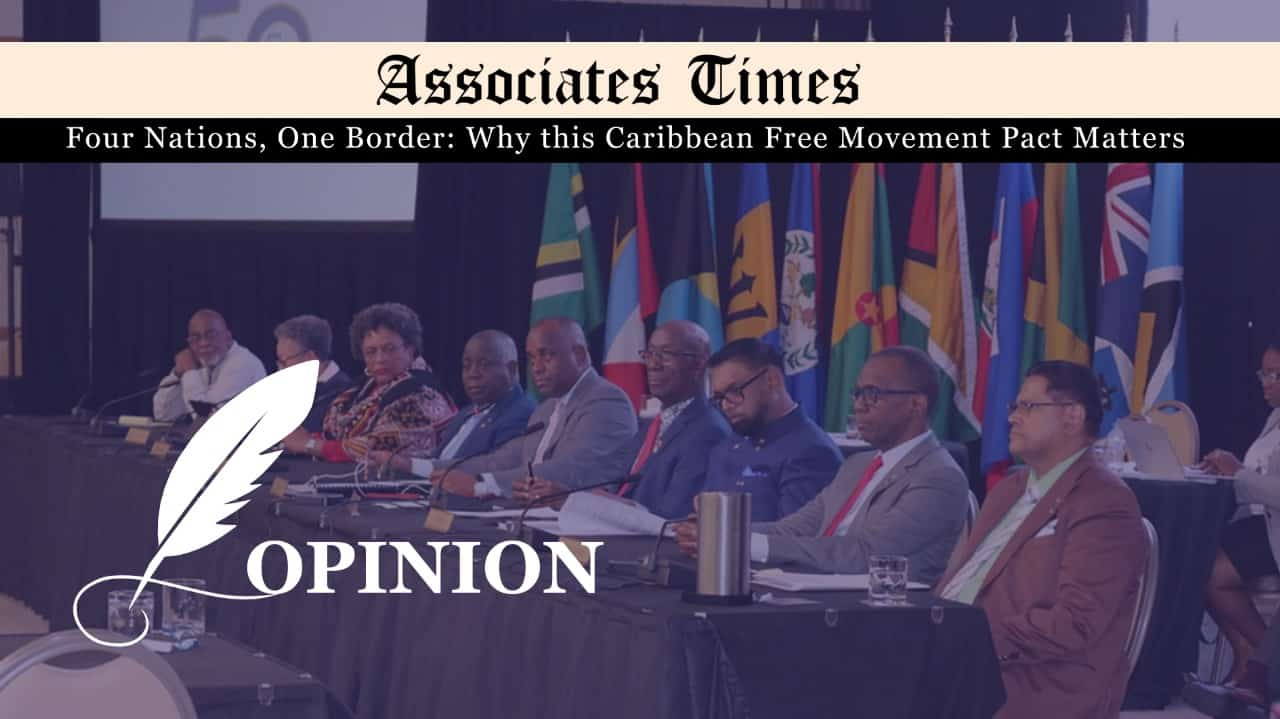
LIAT 2020 set to launch flights to Dominica, Grenada, St Kitts, price starting from US$999
2024-08-29 10:06:28
For decades, Caribbean leaders have advocated for integration, consistently expressing their commitment to regional unity, cooperation, and mutual partnerships.

How regional unity could reshape migration, trade, and identity in the Caribbean
Starting today, citizens of Barbados, Dominica, Saint Vincent and Grenadines and Belize can live, work and move freely across each other’s borders without permits or any limits. This marks a historic shift for the Caribbean and deserves more attention than it is getting.
For decades, Caribbean leaders have spoken about integration, and they continue to do so. Leaders have cited their views on regional unity, cooperation and mutual partnerships. We have heard promises about single market, a stronger community and easy movement for our people but the plans were never got into execution. However, October 1st marks a breakthrough in this decade long conversation as these four countries have taken that leap.
This agreement between the four countries is not just any normal visa free access agreement under CARICOM’s new laws, this agreement has a broader picture. No limitations, clearly means no six-month limits or no need to prove that you qualify enough to travel to the neighbouring islands. No paperwork at all, you just need to be a national of any of the four countries and pack your bags and travel to the country and start your life there.
Families can enroll their kids in schools, workers can take up jobs and one can begin his normal life in a new country without the worry of breaking immigration laws. This agreement is called real integration which was long due.
With this agreement being officially into effect from today, employers will now have access to a wider pool of talent. Workers, especially young people can now seek opportunities without feeling forced to leave the region. Trade and Tourism will also flow easier than ever between these four countries as borders will stop acting like barriers.
Culturally, the ties will be even stronger as nationals will be able to move across islands during their carnival seasons and other cultural events. Such interactions during regional events will build a stronger tie between the people.
As this landmark move is being lead, questions are sure to be raised. What happens if a one country attracts more workers than its services? Will smaller economies lose skilled talent? Can governments really guarantee security? These are fair concerns but demand a proper planning rather than panic.
The agreement signed already includes safeguards, health checks, data sharing between border agencies, and the right to deny to serious risks. The bigger challenge will however remain about managing resources fairly and making sure that no one country bears the strain alone.
The real significance of this pact is not just what it does for these four nations, but what it signals for the rest of region. The new agreement shows that free movement is possible, practical and beneficial, even if everyone doesn’t move together at same pace. Jamaica, Trinidad and others will be watching closely, to note if it works, they will follow quickly.
A strong example is the EU’s Schengen Zone. Millions of Europeans cross borders daily without giving a second thought. This indicates that free movement is possible and achievable only if it is planned properly.
Caribbean people have always been mobile, whether migrating to different countries abroad including UK, US or Canada. But it has always been harder to move across our islands than flying to Miami. That limitation has hindered the dream of regional unity. This new agreement however seems to finally close that gap.
So yes,, this is only four countries for now joining the agreement, but more are to be followed. if the rest of the Caribbean is serious about integration, this is the moment to prove it.